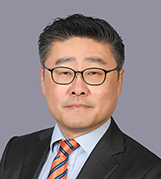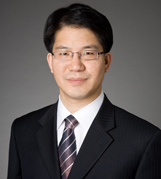When Investments Lead to Investigations: Navigating Korea’s Disclosure Rules for Foreign Investors
For investors in private equity and venture capital, South Korea is a top choice, but evolving disclosure rules could ensnare investors in expensive government investigations. Below, our Korea government enforcement defense team explores the most recent changes, which have added complexity, and lays out strategies to respond to the risks an investment will raise red flags.
South Korea’s leading innovations in tech have long made it an attractive destination for investors in private equity and venture capital. For investors considering a stake in South Korean enterprises, however, failing to keep abreast of the nation’s changing disclosure rules could potentially lead to their being the subject of a drawn-out, expensive governmental investigation, with a threat of criminal conviction and imprisonment. International parties seeking to invest in a publicly traded Korean company should anticipate and respond to the risk that their investment raises red flags with the Korean government.
Controlling the Narrative of Your Korean Investment
Recent (albeit as of yet unsuccessful) efforts by South Korea’s Public Prosecutors’ Office have shown the Korean government’s proclivity to aggressively target international investors for perceived violations of the “Five Percent Rule,” a disclosure rule found within the Financial Investment Services and Capital Markets Act (the “Capital Markets Act”) that was designed to force any investor acquiring more than 5% stake in a publicly traded company to publicly disclose such a holding with the Financial Services Commission within five days.
The Five Percent Rule underwent a significant revision in early 2020, staggering the application of the disclosure rule depending on the purpose of the investment. Although the revision’s intent is to relax the disclosure rule for a certain class of investors, it significantly complicates the question of what kind of investment should be disclosed, when. The change in the Rule, as well as its potential for abuse as a cudgel against international investors, make it particularly crucial for activist investors not to lose sight of the disclosure rule.
As of February 1, 2020, the application of the Five Percent Rule follows the flowchart below:

The two critical questions under this system are: (1) is the investment for the purpose of “influencing management rights”? (2) If not, is the investment considered a “general investment” or “simple investment ”? The answer to these two questions determine the deadline and the content of the disclosure of such shareholdings.
It is critical for international investors to be aware of Korea’s disclosure rules, and proactively manage how their investment will be perceived by the Korean government.
About Kobre & Kim
Kobre & Kim is a conflict-free Am Law 200 law firm focused on disputes and investigations, often involving fraud and misconduct.
Led by former U.S. federal prosecutor Michael Kim, our Korea team includes native Korean-speaking lawyers based out of our Seoul and U.S. offices focused on advising Korean parties on U.S. matters. Additionally, we have extensive experience with South Korean regulatory authorities such as the Korean Financial Supervisory Service and the Korean Public Prosecutors’ Office.
Our global, multi-jurisdictional presence allows us to implement attorney-client privilege during investigations, giving clients control to decide if and what to share with others. Rather than maintain commercial relationships, we work alongside a client’s regular outside legal team as their special counsel for discrete projects. As a result, when interacting with government investigators, we maintain a reputation for independence and credibility.



